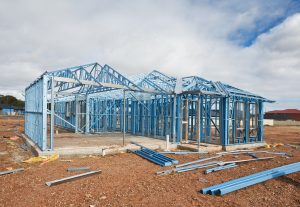How to Become a Real Estate Developer
Go Back To Previous PageBecoming a real estate developer is filled with challenges and rewards. This profession requires a unique blend of skills, including a keen understanding of the real estate market, a solid foundation in finance and business, and the ability to manage complex projects. This article offers a detailed roadmap for this lucrative and fulfilling role within the residential real estate industry.
Understanding the Role of a Real Estate Developer
A real estate developer is an individual or company responsible for creating or renovating properties. These properties range from residential housing to office buildings, retail spaces, mixed-use developments, and industrial facilities. The developer is involved in every project phase, from the initial land acquisition to the final sale or leasing of the property.
A real estate developer’s responsibilities are diverse and long-term. They include scouting for suitable land, planning the project, acquiring the rights to the land, and managing the demolition of existing structures. The developer also oversees the project budget, collaborates closely with real estate investors, architects, and engineers, and obtains the necessary permits and licenses to complete the project.
The developer’s role does not end with the developer’s property. They also determine an exit strategy, which involves deciding whether to sell or lease the property once it is complete.
Some developers invest their funds into the project, while others finance the deal or pool funds from other investors. Regardless of the funding method, the developer’s primary responsibility is to ensure the project manager’s success.
Requirements for Becoming a Real Estate Developer
Becoming a real estate developer requires more than just a passion for the field; it involves significant risk and substantial capital. As a result, breaking into this profession is not as easy.

As other real estate ventures like house flipping or buying rental properties.
Most real estate developers hold a bachelor’s degree and relevant work experience. A bachelor’s degree and a combination of education and experience are essential for convincing investors and partners of their capability to manage construction projects successfully. Some states require real estate developers to obtain a general contractor’s license before leading any project—a Real Estate Developer.
-
Acquiring the Necessary Education
The first step to becoming a real estate developer is obtaining a bachelor’s degree. While some schools may not have a specific program in real estate development, business administration, finance, law, engineering, and construction management degrees can provide a solid foundation for a career in this field. Property owners, property management, and property development are different.
Pursuing a master’s degree can be advantageous for those who want to accelerate their careers, although it is not a requirement for success in real estate development.
-
Gaining Experience in the Field
Gaining experience in the real estate industry is crucial before entering a real estate development company. You can achieve this by working for an established real estate development firm or exploring related fields such as finance or construction.
Although becoming a developer may seem daunting, you can start small. For instance, you could purchase an empty lot and build a single-family home or a small multi-family or commercial building.
Also, some developers opt for redevelopment instead of starting from scratch. This approach involves renovating the interior of an existing building while keeping its exterior and structure intact. Choosing redevelopment can often be a more straightforward entry point compared to constructing a completely new building.
-
Obtaining the Necessary Licenses
Many states require real estate developers to obtain a real estate license. Therefore, it is advisable to start studying for the state exam while working toward your professional goals.
Additionally, some states, such as New York and California, require a contractor’s license, which is essential to the contractor’s local requirements.
-
Building a Professional Network
Real estate development is a collaborative process involving various professionals, such as real estate agents and brokers, investors, architects, engineers, bankers, and contractors. Building a professional network is essential for finding trustworthy partners when it’s time to initiate a project.
To expand your network, consider attending local real estate meetups, trade shows, seminars, professional events, and social gatherings hosted by individuals in the real estate industry.
-
Continuous Learning
The field of real estate development is dynamic and requires developers to take on various roles. Therefore, continuous learning is essential to stay updated on the latest trends and advancements in the industry.
This may involve gaining knowledge in budgeting, contracts, negotiations, and construction and conducting thorough research on the local market. Obtaining specialized certifications can also help demonstrate your knowledge and expertise in the field.
The Journey to Becoming a Real Estate Developer
Successful real estate developers require time, patience, and considerable hard work. However, for those willing to invest the effort, the rewards can be significant. Real estate developers play a vital role in shaping communities and cities, making this a fulfilling career path.
It’s important to remember that everyone’s jersey to becoming a real estate everyone’s is unique. Your strengths and weaknesses will influence your career trajectory. Nevertheless, with the proper education, experience, and networking, you can navigate the complexities of the real estate development industry and build a successful career.
Is being a real estate developer a good job?
Being a real estate developer can be challenging, but it is a rewarding profession. According to ZipRecruiter, the average annual salary for real estate developers in 2022 was $79,499. However, there is significant earning potential, with wages on the high end reaching up to $179,000 annually.
This potential largely depends on the effort developers invest in strategizing and making wise investment decisions and their willingness to learn about different investment strategies, including investment waterfalls. You also build relationships with buyers and sellers as well as real estate brokers.
Independent real estate developers also enjoy the flexibility of setting their course. However, the extent of this flexibility may fluctuate based on their financial goals.
How long does it take to become a real estate developer?
Becoming a real estate developer typically takes about seven years on average. However, it’s important to note that you only need a high school diploma to obtain your real estate license; any additional education is simply a bonus.
A standard real estate course for obtaining your license can take six months if attended in person or around eight weeks if completed online. The course duration can vary depending on your state, as each state has specific requirements.
How to become a real estate developer with no money
You don’t need wealth to become a successful real estate developer. Developers who invest their money might have a small edge in getting larger loans. However, this method also comes with big risks.
As a real estate developer, you can apply for commercial loans. You can also work with trusted investors through real estate syndications. It’s perfectly fine if you don’t have your funds. However, you must build strong relationships with these individuals and institutions to secure financing.
You can create a joint venture as well. Following the earlier steps to gain experience and establish yourself as an expert can be a significant advantage.
Takeaways
- Real estate development involves the buying, developing, and selling of properties and land.
- To become a real estate developer, you need a bachelor’s or master’s degree in a related field. You should also get your real estate development license. Finally, gain industry experience in any way you can.
- As a real estate developer, you can work solo or for a company.
- You can choose different career paths in real estate development. Some options include architecture and risk management.
- When you start as a real estate developer, it’s important to connect with industry professionals.
- You should also find your specialty. Keep a checklist of your goals. Start marketing as soon as you begin a project. Finally, stay updated on industry trends.
- Ultimately, real estate development does not require you to be wealthy or to have a master’s degree. It mainly requires the creativity and insight needed for navigating financial loans and managing projects.


